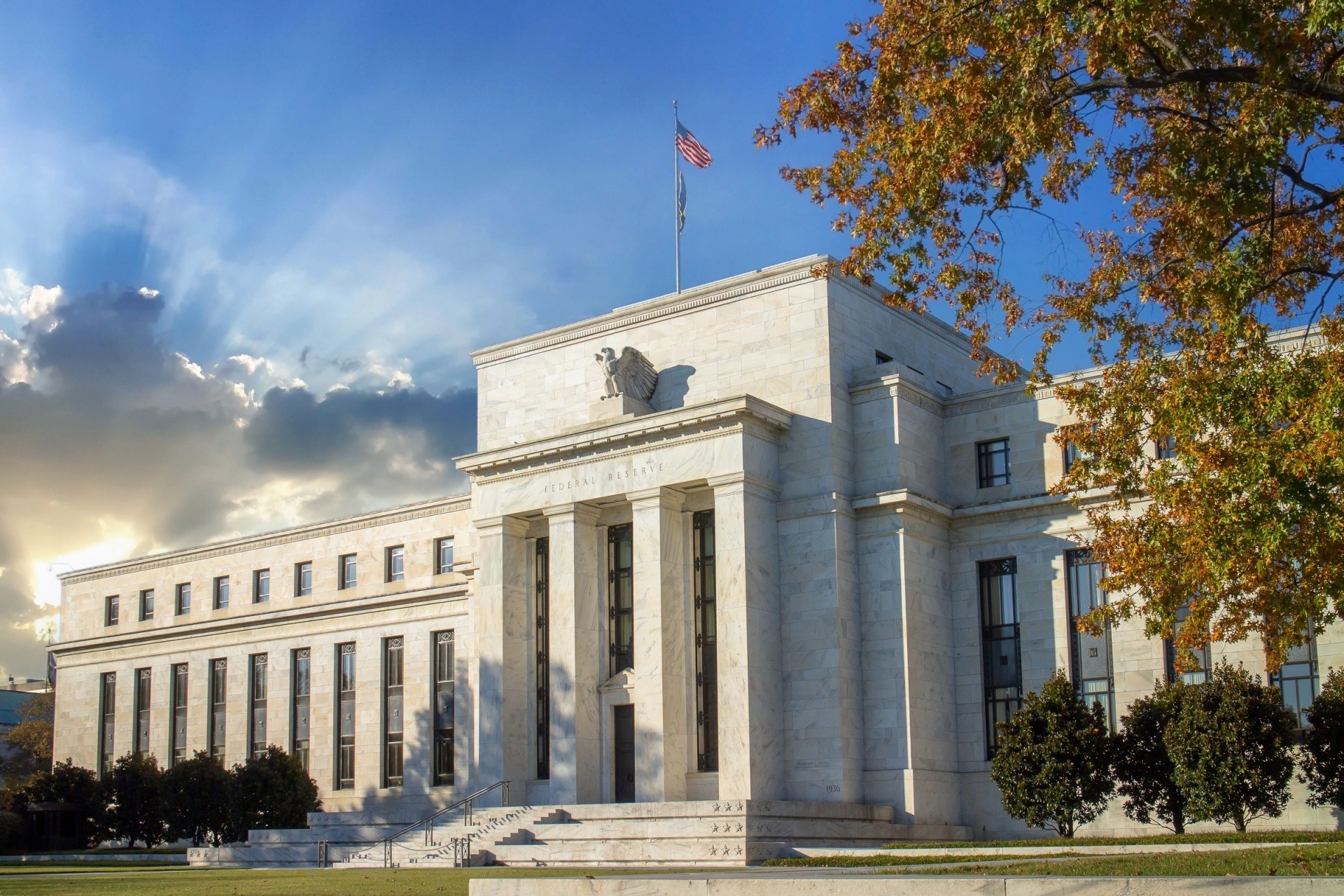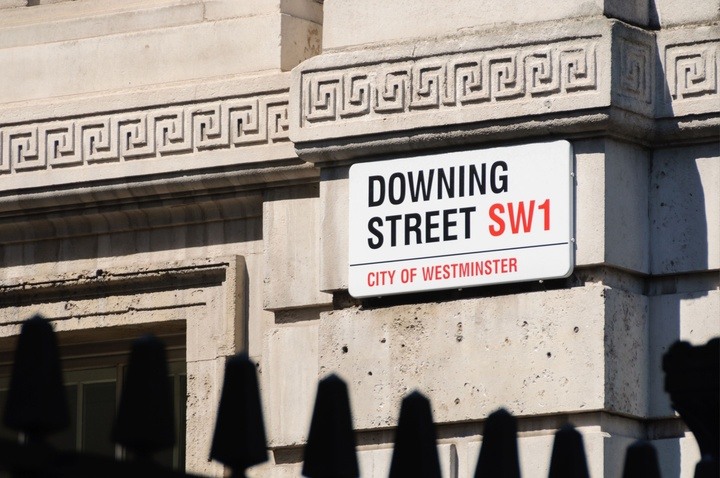Weekly Briefing: Global Equities Rebound, UK House Prices Surge, Oil Prices Spike Amid Conflict, and China’s Economic Strength Insight
This week’s briefing covers the sharp rise in UK house prices, the surge in oil prices following geopolitical tensions, a strong rebound in global equity funds potentially driven by rate cuts, and the enduring economic strength of China as it continues to shape global markets.
UK Property
UK House Prices Rise at Fastest Pace in Two Years
- The UK housing market experienced its fastest annual price increase in two years this September, with a 3.2% rise compared to the same period last year. This marks a notable acceleration from the 2.4% growth seen in August and exceeds economists' expectations of a 2.7% increase.
- Monthly, prices rose by 0.7%, with the average house price now sitting at £266,094. While this remains 2% below the peak seen in mid-2022, the market appears to be stabilising after a period of turbulence driven by rising mortgage rates and inflation, according to Nationwide
- Robert Gardner, chief economist at Nationwide, attributed the market’s resilience to a combination of real income growth and lower borrowing costs, mainly falling mortgage rates, which have improved affordability for buyers.
- The market's recovery is also evident in rising mortgage approvals, with the BoE reporting the highest level of approvals since August 2022, increasing from 62,500 in July to 64,900 in August, while remortgaging approvals also saw an uptick.
- On another note, regional disparities persist, with Northern Ireland leading price growth at 8.6%, more than three times the national average. Meanwhile, northern England continues to outperform the south, with year-on-year price growth of 3.1% compared to 1.3% in southern England.
- Economist Alex Kerr predicted, "The resulting drop in mortgage rates should boost demand and house prices should gain more momentum next year."
Global Economy
Oil Prices Surge as Iran Strikes Israel
- Oil prices surged on Tuesday following Iran's launch of 180 missiles at Israel, sending Brent crude up by 4% to over $74 a barrel, further escalating to $75 after Tehran’s missile strike was confirmed.
- The conflict's impact extended beyond oil markets, as stocks around the world tumbled. The Stoxx 600 index in Europe closed down 0.4%, while Wall Street's S&P 500 fell 0.9%. Gold, a traditional safe-haven asset during times of geopolitical tension, spiked by 1.3% to $2,673 per troy ounce, nearing record highs.
- David Oxley of Capital Economics warned that a significant escalation involving Iran could draw the US into the conflict, raising the stakes further with Iran, which is responsible for about 4% of global oil output and holds a pivotal role in the energy market.
- Prior to the escalation, oil prices had been trending downward, with Brent crude dipping below $70 per barrel due to expectations of increased output from Libya and OPEC.
- However, these geopolitical risks quickly reversed this trend. Analysts from Goldman Sachs had previously forecasted a possible decline to $60 per barrel by next year but acknowledged that the evolving conflict could upend market expectations.
Global Equity Funds Rebound Amid Rate Cuts and Stimulus
- Global equity funds saw a sharp rebound in September, driven by a combination of central bank rate cuts and significant stimulus measures from China.
- HSBC analysts reported that global equities are up 18% for the year through September, the highest returns for the period since 2009 during the post-financial crisis recovery.
- The second-highest weekly fund inflows of the year were recorded in mid-September, with $51 billion being invested into global equity funds which HSBC attributes to the start of more accommodative monetary policies, including a 50-basis point rate cut from the US Federal Reserve, and similar moves from other major central banks.
- The easing of rates has helped restore investor confidence, especially in sectors like technology and healthcare, which stand to benefit from the improving economic outlook.
- European equity funds, which had been facing outflows earlier in the year, are also showing signs of recovery. HSBC believes that, despite issues in the Middle East, the positive momentum will continue in the coming weeks, particularly as dovish policies from central banks continue to support growth.
- "We think that the outlook for Healthcare is more supportive as the sell-side EPS momentum has surged recently," says HSBC.
75 Years of China's Economic Growth and Global Influence
- Over the past 75 years since the founding of the People's Republic of China, the country has transformed into an economic powerhouse, with significant advancements in both economic growth and technological capabilities.
- From 1979 to 2023, China’s economy grew at an average annual rate of 8.9%, far surpassing the global average of 3% over the same period. This rapid expansion has solidified China’s position as the world’s second-largest economy.
- China’s contribution to global economic growth has been immense, averaging 24.8% annually, the highest of any country. In 1952, China’s GDP stood at just $30 billion, rising to $149.5 billion by 1978, which accounted for 1.7% of the global economy. Fast forward to 2023, and China’s GDP has reached $17.8 trillion, representing 16.9% of the world’s total economic output.
- Along with this, the nation’s technological advancements have been equally staggering. In 1985, China recorded 8,558 patent applications, but by 2011, this figure had risen to 526,000. By the end of 2022, China led the world in patent applications, with 1.619 million accepted applications, demonstrating the country’s growing dominance in innovation and intellectual property.
- China has also cemented its place as a global leader in trade. In 1950, China’s total foreign trade was a mere $1.1 billion, but by 2023, it had risen to $5.9 trillion, accounting for 12.4% of global trade.
- Service trade, once negligible, has also grown exponentially, reaching $933.1 billion in 2023, positioning China as the fourth-largest player in this area globally marking a significant milestone, reflecting the broader diversification and modernization of China’s economy as it continues to expand its global influence.
- Although China has shown remarkable growth over the last 75 years, things are likely to slow down, due to growing issues like reduced productivity, aging population and decreasing external maps amongst others.
Final Note
This week's global economic developments present a blend of challenges and opportunities.
The UK housing market rally, driven by falling mortgage rates, signals improved affordability but highlights continued regional imbalances.
Meanwhile, escalating tensions in the Middle East, particularly Iran’s recent missile strike, have sent oil prices climbing, underlining the ongoing vulnerability of energy markets to geopolitical risks.
On a more optimistic note, global equity funds are rebounding strongly thanks to central bank rate cuts and stimulus measures, offering hope for sustained market growth.
As we move forward, investors should remain attentive to these turbulent economic conditions, ensuring they are well-positioned to navigate both the risks that lie ahead.
%20(3)%20(2).jpg)






